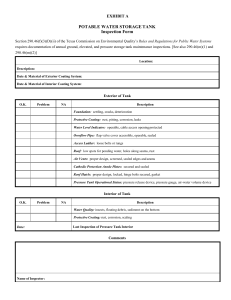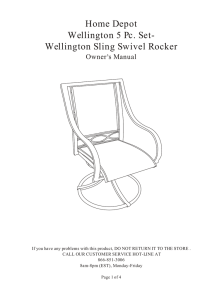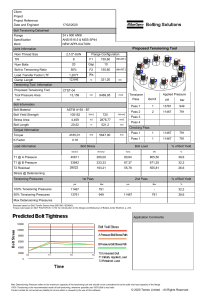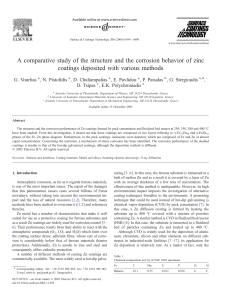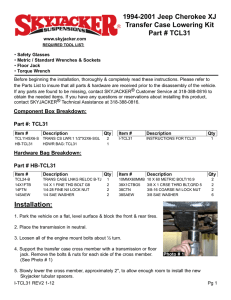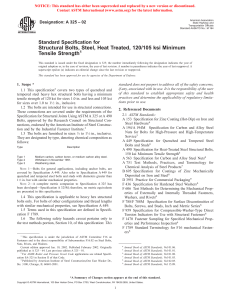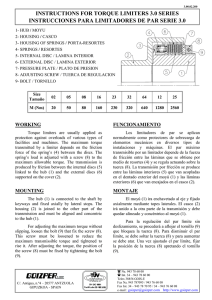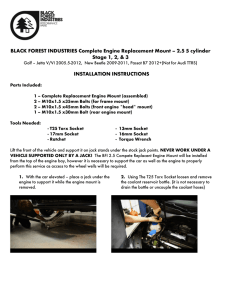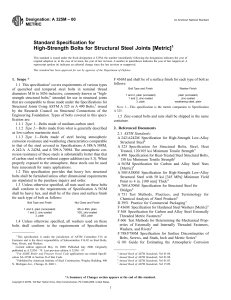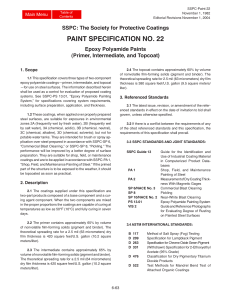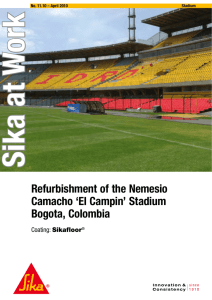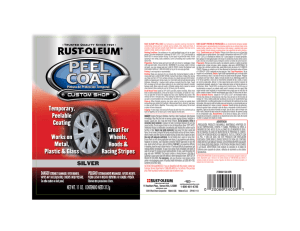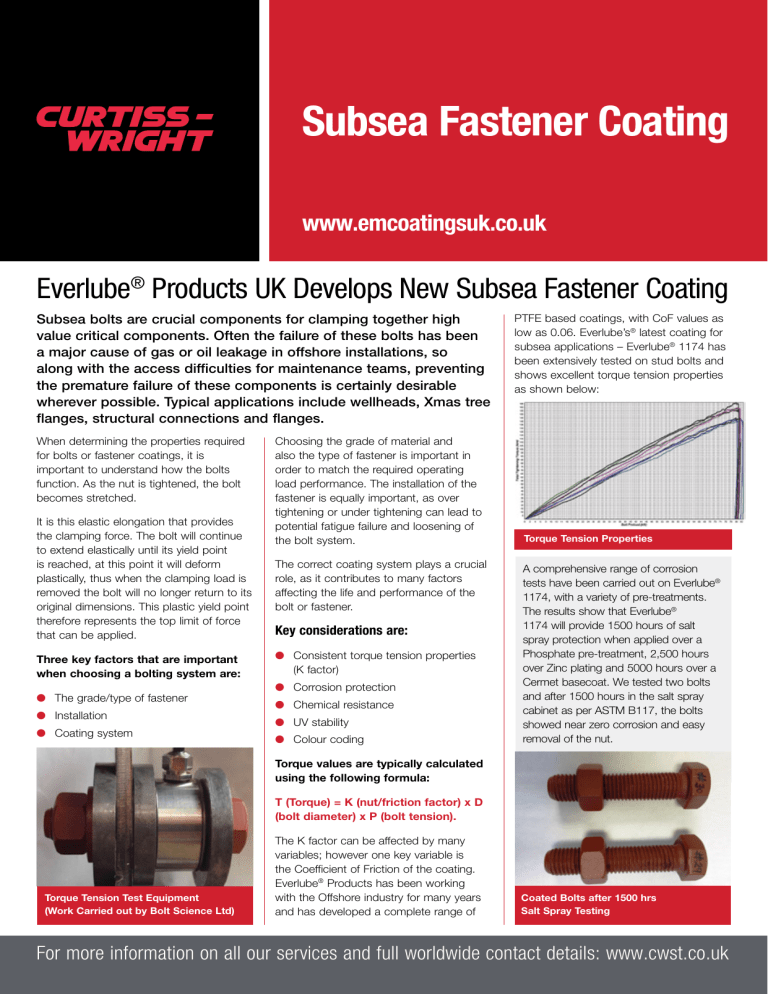
Subsea Fastener Coating www.emcoatingsuk.co.uk Everlube® Products UK Develops New Subsea Fastener Coating Subsea bolts are crucial components for clamping together high value critical components. Often the failure of these bolts has been a major cause of gas or oil leakage in offshore installations, so along with the access difficulties for maintenance teams, preventing the premature failure of these components is certainly desirable wherever possible. Typical applications include wellheads, Xmas tree flanges, structural connections and flanges. When determining the properties required for bolts or fastener coatings, it is important to understand how the bolts function. As the nut is tightened, the bolt becomes stretched. Choosing the grade of material and also the type of fastener is important in order to match the required operating load performance. The installation of the fastener is equally important, as over tightening or under tightening can lead to potential fatigue failure and loosening of the bolt system. It is this elastic elongation that provides the clamping force. The bolt will continue to extend elastically until its yield point is reached, at this point it will deform plastically, thus when the clamping load is removed the bolt will no longer return to its original dimensions. This plastic yield point therefore represents the top limit of force that can be applied. Key considerations are: Three key factors that are important when choosing a bolting system are: l Consistent torque tension properties (K factor) l The grade/type of fastener l Installation l Coating system The correct coating system plays a crucial role, as it contributes to many factors affecting the life and performance of the bolt or fastener. l Corrosion protection l Chemical resistance l UV stability l Colour coding PTFE based coatings, with CoF values as low as 0.06. Everlube’s® latest coating for subsea applications – Everlube® 1174 has been extensively tested on stud bolts and shows excellent torque tension properties as shown below: Torque Tension Properties A comprehensive range of corrosion tests have been carried out on Everlube® 1174, with a variety of pre-treatments. The results show that Everlube® 1174 will provide 1500 hours of salt spray protection when applied over a Phosphate pre-treatment, 2,500 hours over Zinc plating and 5000 hours over a Cermet basecoat. We tested two bolts and after 1500 hours in the salt spray cabinet as per ASTM B117, the bolts showed near zero corrosion and easy removal of the nut. Torque values are typically calculated using the following formula: T (Torque) = K (nut/friction factor) x D (bolt diameter) x P (bolt tension). Torque Tension Test Equipment (Work Carried out by Bolt Science Ltd) The K factor can be affected by many variables; however one key variable is the Coefficient of Friction of the coating. Everlube® Products has been working with the Offshore industry for many years and has developed a complete range of Coated Bolts after 1500 hrs Salt Spray Testing For more information on all our services and full worldwide contact details: www.cwst.co.uk Subsea Fastener Coating www.emcoatingsuk.co.uk Everlube® 1174 also acts as an excellent insulating shield between dissimilar metals, due to its high dielectric strength. This helps to alleviate the problem of galvanic corrosion. The images opposite show the level of UV degradation seen in the current market leader for subsea PTFE coatings, in comparison to the stability shown by Everlube® 1174. Everlube® 1174 stands out as having: In addition, Subsea bolting systems can come into contact with a wide variety of chemicals, from those present in sea water to those used in various oil extraction equipment. Hydraulic fluids for example are extremely aggressive and can readily breakdown low grade coating systems. Everlube® 1174 has been formulated to resist all current hydraulic fluids used in the oil/gas industry. This UV resistance also leads to improved resistance to the ISO20340 cyclic corrosion test, which is a more appropriate representation of real-world weathering than the standard ASTM B117 salt spray. l Better chemical resistance UV properties are often overlooked for subsea applications due to the lack of UV light subsea. However, as the bolts are often colour coded, it is essential that the colour remains true, especially as many components will be exposed to UV for several months before they are commissioned subsea. l Lower VOCs l Better corrosion resistance l Significantly better UV resistance l Greater wear life and hardness l Available in standard RAL colours The mechanical properties of the Everlube® 1174 also shows increased performance, with a significant improvement in pencil hardness as well as almost double the wear life on the ASTM 2714 Falex block on ring test. 15 ISO20340 cycles Everlube® 1174 – Showing a couple of small blisters and no creep from the scribe. UV degradation of current market leader 15 ISO20340 cycles current market leader – showing widespread blistering and a small level of creep from the scribe. In conclusion: Everlube® 1174 is a low VOC, low friction, load bearing, thin film, resin-bonded, corrosion resistant, thermoset PTFE coating. UV stability of Everlube® 1174 l Everlube® 1174 is shown to meet or exceed the performance of its’ key competitor in all relevant performance tests. Everlube® Products are specialists in the development, application and supply of highly engineered coatings. We provide support in selecting the right coating to meet your design challenges, improve performance and extend the life of your components. For more information about Everlube® Products and Services, please call (44) 1386 421444 For more information on all our services and full worldwide contact details: www.cwst.co.uk
